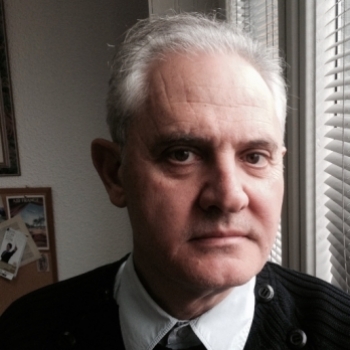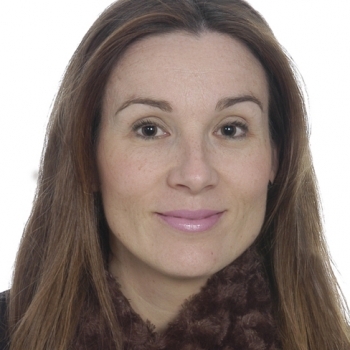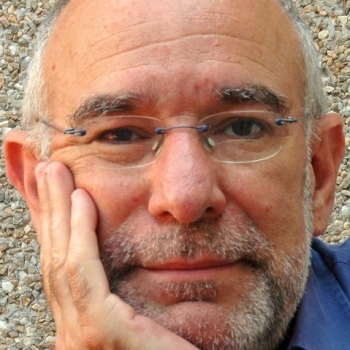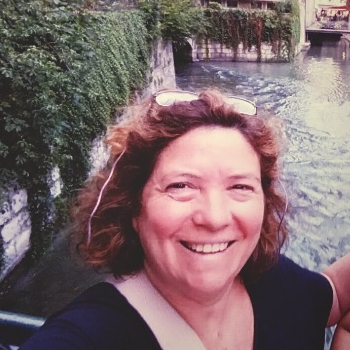SYMPOSIUMS
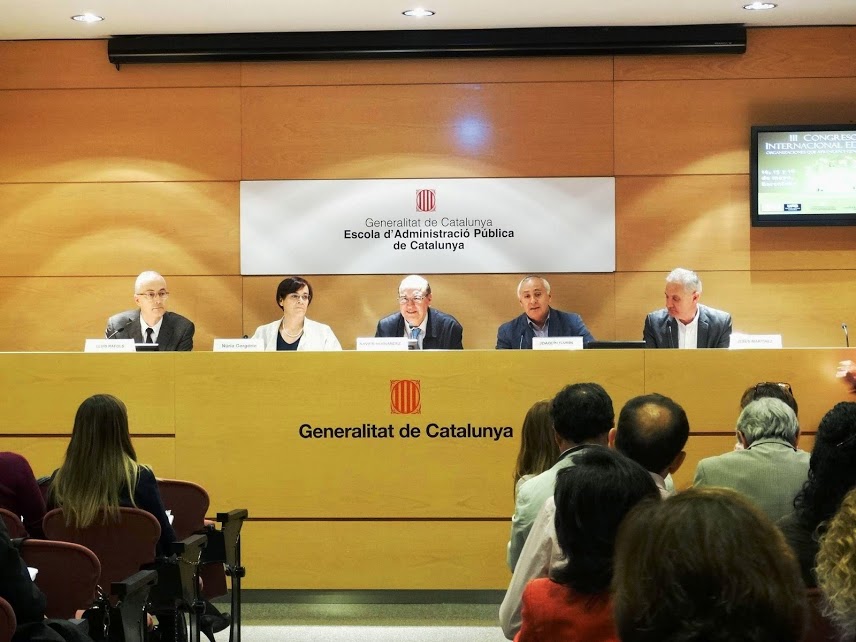
Coinciding with the evolution of the classic paradigms of training and learning, to others focused directly on performance and professional efficiency, training departments are often forced to put into crisis, first, and then abandon their traditional tools and methodologies. This evolution leads to their integration into broader Human Resources departments where training transforms into new practices that emphasize the support for learners’ autonomy and services’ provision that will discover, accompany and stimulate capacities and potential of their professionals, and by extension, the organization.
But, in turn, in a double movement, Human Resources departments that are fully aware of the importance of internal knowledge as the organization best asset, claim a leading role in the organization and are integrated into the first management level (in English-speaking terminology, the C-Suite).
To confront successful experiences that have made this double evolution, we will have first level speakers from public and private organizations. Some of them come from business areas as demanding as the technological and health companies. The final objective of this symposium is to show how the path that the rest of organizations should follow if we want to preserve them from obsolescence based on the development of the people that make them up.
Participants: Javier Martínez Aldanondo, Oscar Dalmau Ibáñez, María José Martí González, José Luís Muñoz Moreno and Anna Fornés Colomer.
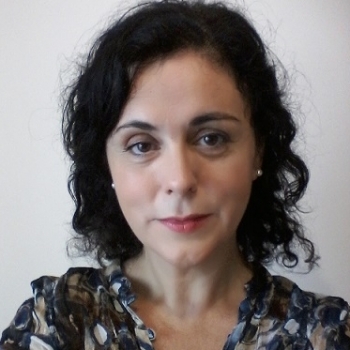
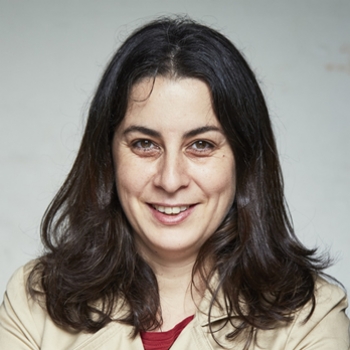
Knowledge management requires methods, practices and technologies in order to facilitate and to make a great asset in organizations that learn and adapt to the changing reality. Professionals must have the necessary skills to use and share knowledge effectively, as well as to have resources and the right direction.
This seminar involves institutions from different fields and sectors that, with their knowledge management projects, have achieved professionals and organization improvement. Real cases that have taken the leap from "I want to do knowledge management" to "let's do it" with the evolution of organizational culture and the development of concrete tools. Tools that encourage agile contexts of active learning, exchange and generation of new ideas.
It will be an opportunity to discuss successful cases of organizations that have been able to identify the relevant knowledge to and by the organization, disseminate it and share it as a common heritage that generates new knowledge and development of projects and professionals.
Participants: Pilar Saura Agel, Begonya Folch, Àlex Hinojo Sánchez and Araceli Crespo Bachero.
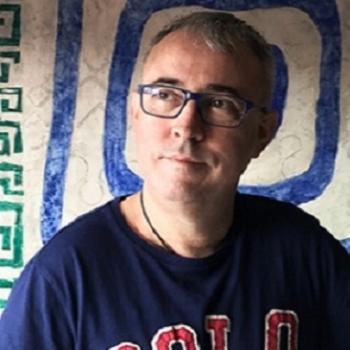
Education is one of the areas of human activity that soon incorporated into the dizzying digital career that began in the early nineties of the last century, with the kick-off given by CERN declaring the public domain website. Almost from the first moments, online training began to develop, taking just a decade to begin to consolidate as usual in different areas and educational levels. The network, as an inexhaustible source of content and with its infinite possibilities of communication between people, seemed to offer the promise of making reality the most innovative proposals of the old progressive pedagogues of the 20th century -Dewey, Montessori, Freinet, Illich... and in a certain way it was. The development of LMS and the application of social networks as learning tools have contributed greatly to the emergence of new pedagogies based on the budgets of social and collaborative learning, and constructivist forms of learning. Currently, the use of the network and digital technology has impregnated the educational practice in a generalized way without making almost any distinction between online and face-to-face modalities.
This symposium aims to ask ourselves questions about the future of education by identifying those sociocultural and sociotechnological trends and factors that are expected to definitively transform the current educational ecosystem in the coming decades. We are going to talk about exponential technologies, blockchain, automation and artificial intelligence, as well as the new digital apprentices, about not always obvious ways of consuming contents in the network and attribute truthfulness to the information that we receive. Finally, we will deepen in the true nature of digital education where the network, in all its extension, is outlined as the great learning environment of a hyperconnected world.
Participants: Cristóbal Suárez-Guerrero, Xavier Ferràs, Xavier Mas Garcia and Pablo Lara-Navarra.
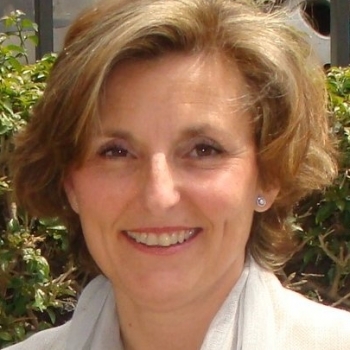
We live in a constantly developing world, where is challenge for employees and companies in most sectors to stay optimally prepared to face professional challenges. The development of technologies is fostering a cultural change in the way people and organizations learn. A change based on collaboration, networking and knowledge management.
In a diverse and changing environment such as ours, traditional learning models in organizations must be rethought. Other models are working, which enhance collaborative environments, work in corporate networks, where is possible to share knowledge, good practices, experiences, ideas, operational improvements, etc... in an agile, fast and accessible way at the moment and place that is needed. It is a way of responding to demands that exist today in companies, where workers are asked to adapt to continuous changes.
Responding to these demands is not an easy task, especially in organizations that still have a traditional structure. To facilitate this new orientation and promote transformation in these structures, it is necessary to create inclusive and diverse environments that foster the relationship between people, beyond their immediate surroundings, and that activate their vocation and passion for learning. In the end, facilitate the necessary conditions to provide value and develop competitive and healthy organizations in a different context, in which to share knowledge and experience becomes an organizational value.
In this symposium, we will have experiences of three cases in large private and public organizations from different sectors. Participation from diverse organizational areas such as the knowledge management area, the innovation area and the People and Training department will enrich the session with its varied perspectives.
We will see how communities of practice, collaborative environments and networking are becoming an effective instrument to respond to these new needs, promoting learning and innovation. The origin of these cases and organizational areas is different, the components, implementation models and information systems that support them vary among them. These are different adaptations to the cultural context of the organization, but in which the same purpose is pursued.
Participants: Maria Isabel Escaler Puigoriol, José Manuel Trejo Menayo, Concepción Laguela Carballosa, Eva María Trillo Sanchez and Pablo Monteagudo Haro.
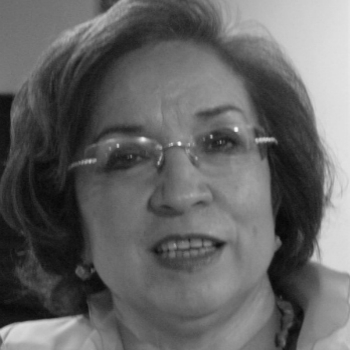
On one hand, human talent is broad, complex, diffuse and difficult to manage. On the other hand, the learnhability assumes the curiosity and the capacity to learn new abilities to stay employed in the long-term. In the first contribution, publications in education journals on Talent Management are reviewed from year 2010 to 2017. The selection criteria are journals in Spanish indexed in Dialnet with full text within the Psychology and Education area. A table of frequencies according to the years of publication and the countries of publication will help to know and deepen the state of the issue within the Spanish-speaking context. The year 2014 stands out as the one with more published articles, next to the 2016. Results show a higher proportion of articles published in Spain, followed by Peru, Colombia and Venezuela.
The results obtained in the second contribution show the ability to work in a group, the commitment to the activities they develop in the educational institution, the adequate communication they establish with peers and teachers and their high satisfaction with the education received and the work environment in the university institution. Stands out the ability of students to adapt into new situations and to accept changes of residence in order to practice the profession.
In the third contribution, the DOCS offers an X-ray from a pilot school that can generate conversations and actions aimed at change and improvement. Change processes do not necessarily have to begin with what does not work (less scored items); it could begin by improving what is already excellent to generate competitive advantages. Knowing each other is important for a better direction and development of people.
The fourth contribution is placed in the context of the person, referred to the Master of Secondary Education. Hence, the personal talent infers with a conceptual approach to the talent, its nature and components and the importance of its management, better, self-management. A questionnaire of self-perception was carried out in the performance of their competences for learning and self-development, as well as the self-analysis of their own autonomy in relation to their personal-academic-professional success.
Participants: Mario Grande de Prado, Elena Ferrero de Lucas, Ana Rosa Arias Gago, Isabel Cantón Mayo, Ruth Cañón Rodríguez, Sheila García-Martín, Mireia Tintoré, Antoni Arasanz, Begoña Ladrón de Guevara, Ramón Pérez Pérez and Marta Soledad García Rodríguez.
With this symposium we want to contribute some of the experiences already consolidated from the academic and professional perspective in relation to leadership in the organizations of the information society. In recent years there has been no talk of "being a leader" but a new approach has resumed, limited to "exercising leadership". Rapid transformations in today's society entail the need to adapt to new organizational contexts, with new leaders who deal with new organizational structures, new processes in knowledge management and with more flexible environments adapted to the information society and knowledge. Transformational leadership is being carried out adapted to the existence of a new approach with regard to education, training, and training and from which a set of good practices are being produced. This information society demands a series of skills and key competences when it comes to leading groups and organizations, since it is increasingly important to have the best talents and human capital. These experiences are captured here as good practice actions when exercising leadership.
Participants: María Pilar Cáceres Reche, Juan Manuel Trujillo Torres, Antonio Campos Soto, Juan J. Leiva Olivencia, José María Romero Rodríguez, Jesús López Belmonte, Arturo Fuentes Cabrera, Rebeca Soler Costa and Inmaculada Aznar Díaz.
The training of public servants has always been part of human resources management policies in Public Administrations. The promotion process within the public sector has always been based, partly, on accreditation of knowledge. Over time, as social demands were changing and technological transformations were incorporated into public management, public servants’ knowledge was adapting to new circumstances. Thus, continuous training was fully incorporated into the normal activity of the public sector. Talent management became an asset of public policies.
Over time, training technologies have undergone important changes. Learning processes, even based on the same basic principles, have been transformed or acquired another dimension by the incorporation of new resources and techniques that increase their efficiency. Now, the public sector training faces new goals and challenges that question some of the traditional paradigms of the usual training models. New fields and new approaches have emerged in relation to the people’s learning and the transmission of knowledge within organizations that invite us to rethink the role of Public Administration training.
This new reality, thus, requires those responsible for organizations, social agents, training professionals and public employees to articulate a new training story to respond to this new situation. Our past habits do not assist to solve the management of knowledge and talent in the public sector. Likewise, as for some years now, there was a broad agreement to strengthen continuous training. Now, it is necessary to rethink training policies by incorporating new perspectives, new methods and new strategies developed creatively from different organizational areas. New commitments and new shared decisions are needed to recreate the story of the meaning and value of training in Public Administrations.
Participants: José Antonio Latorre Galicia, Maria Rodríguez i Rodríguez, Francisco Saavedra García and José María Sánchez Bursó
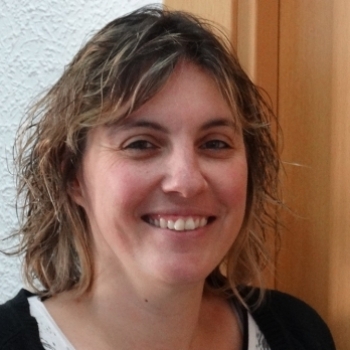
After more than a decade of systematic intervention by many Public Administrations in the implementation of communities of practice, we are facing a great paradox: apparent, simple challenges cost a lot to consolidate; or, there are many initiatives that are launched but few that finally prosper.
Thus, it has become an obligation to ask ourselves why this happens, and what we can do to be more efficient. In particular: before the popularity of the communities of practice that seek to solve the gap between the real work practice and the ideal based on the shared knowledge of those involved, why do not these clusters extend now that we are closer than ever from more horizontal organizations?
To answer these questions, this symposium will have experts with proven applied experience who are implementing communities of practice in both public and private organizations.
Participants: Manel Muntada Colell, Ángel L. Arbonies Ortiz and Javier Martínez Aldanondo.
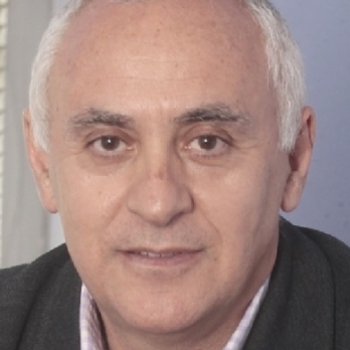
The knowledge society is already a reality that conquers us and affects us. Our connection and dependence on the Network are growing. We can consider this since, in our context, between 70 and 90 percent of youngsters are often Internet users and 70% of minors use social networks and most of them generate content in them. At a general level (Red Innova, 2011), Spanish Internet users already used social networks to share information (82.68%), professional contacts (69.83%) and contacts between friends (58.65%). This situation explains a radical change in the ways how personal and professional knowledge is generated, used and increased; but also, it shows the importance acquired by the informal learning and raises the ways the knowledge manifests and can be used within the framework of the different organizations.
This symposium presents two studies carried out within the framework of public administrations: one of them on good practices in the creation and generation of knowledge and, another one, on the informal systems used by public administration workers in order to improve their skills at the workplace. Moreover, it also includes two contributions on validated strategies and instruments for the promotion and development of informal learning in organizations.
Participants: Aitor Silván Rico, Ana Fernández Félix, Saida López Crespo and Aleix Barrera-Corominas.
The School of Public Administration of Catalonia has strategic challenges: to implant a model of prestige oriented to the academic, political, administrative and humanistic training of the Catalan public administrations personnel; to adapt its range of services and resources to the demands and social policies of the 21st century; and to strengthen its international networks with peer and academic centres, positioning itself among the main international references in training and research in the public sphere. Thus, the new school structure wants to promote training in senior management and research, professional training and external projection, oriented towards a model of excellence.
This project is part of the management of the professional public management system Bill of the Generalitat of Catalonia and its public sector, approved on July 21st 2015. This Bill objective was the professionalization, through the corresponding normative development, managerial positions, by introducing criteria of suitability and professional competence for access and results evaluation.
In this context, the School begins work to develop the leadership professional profile, detailing the functions and competencies that are necessary in order to carry them out based on the principles of action established in the Bill. The aim is to develop a dictionary of the leadership role competencies, to evaluate the current level of leadership roles in relation to these competences and to develop appropriate training itineraries and to configure customized training itineraries.
These skills and leadership skills are a key element for any organization that wants to respond to challenges that arise and fulfil its mission effectively. However, achieving organizations with high leadership skills requires important efforts and prior planning. In the present study (IVALUA) we have carried out an analysis of the leadership competences of the Catalan public administration, identifying competence areas to be prioritized, as well as strategies for the development of people and public sector organizations. This study used a survey, answered by 312 public directives, in which they have been asked to assess their degree of agreement or disagreement with a series of assertions regarding the competencies and managerial skills identified as relevant. At the same time, in order to develop a better understanding of these, nine in-depth interviews have been conducted with public directives from different profiles. The results of the study indicate that certain competency areas need to be strengthened and suggest that a formative offer of practical guidance must be further enhanced.
In addition, in this symposium we will present other contributions on talent management in public administrations, managers’ training in the field of health, key competences from university studies linked to the labour market and the evaluation of access selection to the public administration in different administrations.
Participants: Eulàlia Pla Rius, Tània Fernàndez Lleonart, Marta Camps Soler, Alexander Rodríguez López, Nuria Portillo-Poblador, Oscar Dalmau Ibañez, Carlos Mª Suso Llamas, Ana M. Castaño and Antonio L. García-Izquierdo.
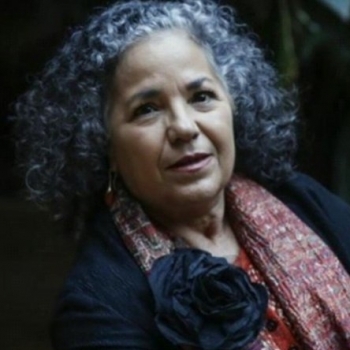
The School of Public Administration of Catalonia has the following strategic challenges: to implant a model of prestige oriented to academic, political, administrative and humanistic training of the Catalan public administrations personnel; to adapt its range of services and resources to the demands and social policies of the 21st century; and to strengthen its international networks with peer and academic centres, positioning itself among the main international references in training and research in the public sphere. Thus, the new structure of the school wants to promote training in senior management and research, continuous professional training and external projection, oriented towards a model of excellence.
This project is part of the Bill, approved on July 21st 2015, from the professional public management system of the Generalitat of Catalonia and its public sector. This project aims at the professionalization through the corresponding normative development, the managerial positions, by introducing criteria of suitability and professional competence for the access and the evaluation of results.
In this context, the School starts working on developing the professional profile of the management function, detailing the functions and competencies necessary to carry them out based on the principles of action established in the project. The aim is to develop a dictionary of competencies of the leadership role, to evaluate the current level of the managers in relation to these competences and to develop the appropriate training itineraries and to configure customized training itineraries.
The skills and managerial skills are a central element for any organization that wants to respond to the challenges that arise and fulfil its mission effectively. However, achieving organizations with high managerial skills requires important efforts and prior planning. In the present study (IVALUA) we have carried out an analysis of the managerial competences of the Catalan public administration, identifying competence areas to be prioritized, as well as strategies for the development of people and public sector organizations. The study has had a survey, which 312 public directives have responded to, in which they have been asked to assess their degree of agreement or disagreement with a series of assertions regarding the competencies and managerial skills identified as relevant. In parallel, to develop a better understanding of these, 9 in-depth interviews have been conducted with public directives of different profiles. The results of the study indicate that certain competency areas need to be strengthened and suggest that a formative offer of practical guidance must be further strengthened.
In addition, the symposium will present other contributions on talent management in public administrations, the training of managers in the field of health, the key competences of university studies linked to the world of work and the evaluation of access selection to the public administration in different administrations.
Participants: Laura Rosillo, Eva Herrero & Magda Vila.

The interest and concern for learning processes is increasing among professionals and theoretical-researchers (not only in the educational field) for their contribution to the well being of people, as well as to the improvement of organizations and of society as a whole. In the strictly pedagogical field, theories about social learning are widely known and have a long history. However, it has not been until its transfer to the field of organizations, organizational learning, work in the workplace, that these theories and principles on social learning and online learning are concentrating the interest they deserve. In relation to this topic, the present symposium presents four contributions that aim to illustrate, from different perspectives and fields, research and practical experiences on policies, dynamics and tools that allow learning processes to be developed through networking, with and without the use of technology.
The first contribution focuses on the socio-educational sphere and has the dual objective of promoting online learning and connecting the various socio-educational services of the Raval district of Barcelona. The second contribution shows some of the results of a national research on organizational learning processes in primary and secondary schools, as well as the use made by teachers of technology to, among other things, interact and learn. The third text presents a proposal for a platform that aims to enhance the capacity for work and learning in the network of "Banc de Llet Banc de Sang i Teixits de Catalunya". The latest contribution reviews the characteristics and training needs of 21st century managers and proposes a professional development program based on action learning. These four contributions suppose a clear evidence of an increasingly marked and demanded tendency towards proposals that allow to generate learning processes with and through others, both in closed labour context as a more open and dynamic social-community environment.
Participants: Anna Díaz-Vicario, Edgar Iglesias Vidal, Sara Franco Farré, Alicia Marzo Salas, David Rodríguez-Gómez, José Luís Muñoz Moreno, Vanessa Pleguezuelos Hernández and María Pilar Gamarra Gamarra.


